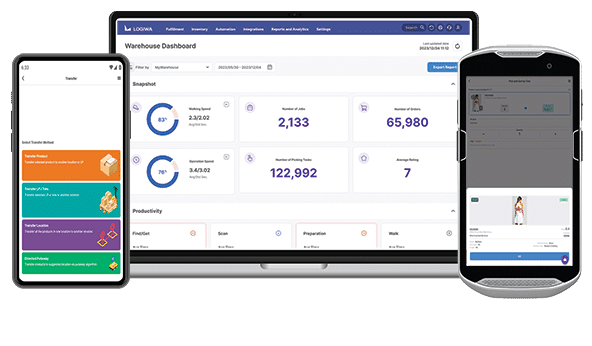Across the world, the start of a new year typically prompts people to try and become better versions of themselves. New Year’s Resolutions abound, and people strive to stick with their new life goals to see a larger change in themselves.
If this is you, and if one of your New Year’s Resolutions is to finally find a side hustle project like you’ve been planning for ages to help pay the bills, you may find this article to be extremely enlightening.
Indeed, we’re going to be talking about retail arbitrage, and you might find yourself very interested in the information contained within.
Contents
What Is Retail Arbitrage?
In the simplest of terms, retail arbitrage is buying something for a low price from one retailer and then selling it for a higher price to another retailer. For example, if you were to find a nice pair of headphones on sale at Best Buy for $25, retail arbitrage would be then turning around and selling it for $75 on Amazon (or another retailer that allows for external sellers).
If you’ve been asking yourself, “What is retail?” that is a question you need to know the answer to before you start chasing after the idea of retail arbitrage as a potential side job.
Once you have a firm idea of what retail is, you’ll be able to learn the best ways to make a profit from your retail arbitrage escapades.
Here is everything you need to know about eBay dropshipping and how you can dropship for eBay!
How Does Retail Arbitrage Work?
At its core, retail arbitrage is a pretty simple concept. Retail arbitrage is when you – or another seller – buy a product for a discount from one retailer (Retailer A), and then you sell the product to another retailer (Retailer B) for a higher price.
This allows you, as the intermediary between the two retailers, to end up with a profit.
However, although it may seem pretty simple on paper, in truth, it requires more time, energy, and effort than you might be expecting. When it comes to retail arbitrage, you must make sure to be constantly looking for bargains, and then you must make sure that you:
- Buy the item at the bargain price before it sells out.
- Sell it before Retailer B starts to price-match the lower price on the item.
When it comes to retail arbitrage, you may find that there are days filled with more frustration than victory, and you may also discover that there might be days where you’re unable to find any bargains – as such, this means you’ll be losing out on a day’s worth of profit.

Why Is Retail Arbitrage Important?
Retail arbitrage is important because it allows smaller businesses to start seeing profit margins that are much higher than you might otherwise assume. Rather than toiling away day-to-day to see that paycheck at the end of the week, you may find that you’re getting out and seeing more of the world – even if it’s just a retail store – without losing out on having money to pay your bills and keep a roof over your head.
If you’re excited about going bargain hunting and getting whatever items you find out there for a profit, you might also find retail arbitrage to be a very fulfilling way of spending your days. Because of how flexible retail arbitrage is, it has a lower barrier to entry than other side hustles you might attempt to take up, but so long as you’re willing to put in the time and effort you should be able to see real dividends with this process.
Additionally, retail arbitrage is a way to move stock from retailer to retailer, which is why retailers like Amazon allow it to happen. For example, if Amazon is willing to give you a $5 profit for something you bought from a separate retailer, Amazon is likely seeing that the product is worth something to them.
They can pay you $5 and then turn around and sell it for $10, meaning that they get a $5 profit on what they paid you. This is one of the main reasons that retailers like Amazon will allow you to participate in retail arbitrage – in their eyes, everyone wins.
Pros and Cons of Retail Arbitrage
Pros
- Retail arbitrage allows smaller businesses – and even individuals – to gain money without having to work a traditional job.
- So long as you like bargain hunting, retail arbitrage is a great job for people to take on that doesn’t leave them beholden to a boss or other sort of oversight.
- Because of how retail arbitrage works, people can focus on fields/items that interest them the most, meaning that retail arbitrage can become a passion product that will keep you interested (as a seller) for a long time to come.
- When it comes to retail arbitrage, you can make a large amount of profit for a relatively-small start-up fee.
- If you work with a fulfillment service such as Amazon FBA, once you mail the product off to Amazon, you won’t have to worry about your items – just wait for the money to come on in.
Cons
- You may find that your whole life becomes a constant search for bargains on all things, and if you don’t like bargain-hunting, you can burn out extremely quickly.
- If you buy a product for a certain price, but it then doesn’t sell, you will still be out of the money that you spent.
- Depending on if you’re doing online or offline shopping for the products you’d like to sell, you might be beholden to delays promoted by external warehouse management software or a warehouse management system.
- Retail arbitrage can ebb and flow with regard to profit, meaning that it might not be a stable source of income.
FAQs
Is retail arbitrage illegal?
At the current time of writing this article, retail arbitrage is not illegal. So long as you’re able to find those good deals and transform them into profit, you are safe! So, look for those deals and watch the money begin to trickle in.
To hammer the legality of retail arbitrage even further, there are legal protections (in the United States) to protect people who participate in retail arbitrage. As such, retail arbitrage can be a very lucrative – and legal – option for people who enjoy seeking out bargains.
Can you really make money with retail arbitrage?
Indeed! You can make lots of money with retail arbitrage. However, be advised that this isn’t necessarily a get-rich-quick sort of scheme. Indeed, retail arbitrage can require the same amount of time, energy, and effort as a 9-to-5 job. You will have to put in the time, energy, and effort for seeking out those bargains.
Also, keep in mind that if – for whatever reason – you’re unable to find sustainable bargains or you’re unable to flip the products for enough of a profit, you might end up with a deficit. Make sure to be careful with what you’re attempting to flip so that you don’t end up at a loss.
Is retail arbitrage legal on Amazon?
Retail arbitrage is legal on Amazon! Many sellers claim that they were banned or that they lost their Amazon Seller account because of retail arbitrage, but in truth, Amazon just has extremely strict rules and regulations when it comes to selling on their platform.
Most sellers who lose their accounts have typically mislabeled something they’re selling, which is why they get banned. However, retail arbitrage as a concept is not the sole reason to ban someone from Amazon.
In summary: retail arbitrage is legal on Amazon.
Can I buy products and resell them?
Yes. You can buy products from one retailer and resell them on another reseller platform. Just make sure that you’re honest and upfront with the condition of the item (if you claim it is “new,” make sure it is actually new).
The fastest way to run into trouble with retail arbitrage is to – accidentally or on purpose – lie to a customer about the condition of an item.
Turn High Volume DTC fulfillment excellence into your competitive advantage
3PL
Cloud 3PL software for high-volume fulfillment excellence





